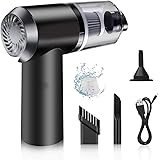Dealing with severe pain can significantly impact one’s ability to get a restful night’s sleep, creating a challenging cycle of discomfort and exhaustion. Understanding the intricate relationship between pain and sleep is crucial in finding effective strategies to improve overall well-being. In this article, we will delve into the consequences of severe pain on sleep patterns, the necessity of addressing pain management for better rest, and explore various practical approaches and techniques to alleviate pain and enhance sleep quality. By integrating mindful practices, creating a conducive sleep environment, and seeking professional guidance, individuals can embark on a journey towards achieving a more restful and rejuvenating sleep experience despite chronic pain challenges.
Understanding the Impact of Severe Pain on Sleep
When pain becomes a nighttime companion, it can turn your peaceful slumber into a battleground. Understanding how severe pain affects your sleep is the first step in regaining control over your rest.
Exploring the Connection Between Pain and Sleep Disruption
Pain and sleep disruption are like frenemies who just can’t seem to get along. The more pain you experience, the more likely it is to disrupt your precious sleep, leading to a vicious cycle that can leave you feeling exhausted and irritable.
Effects of Chronic Pain on Sleep Quality and Duration
Chronic pain doesn’t just tap you on the shoulder at night; it barges in uninvited, wreaking havoc on your sleep quality and duration. From tossing and turning to waking up multiple times a night, chronic pain can make getting a good night’s rest feel like a distant dream.
Importance of Addressing Pain Management for Improved Sleep
Tackling your pain head-on is not just about feeling better during the day; it’s also about reclaiming your right to restful nights. Recognizing the crucial link between pain management and sleep is key to unlocking the door to better sleep.
Recognizing the Link Between Pain Management and Sleep
Pain management isn’t just about popping a pill and calling it a day; it’s about paving the way for peaceful slumber. By addressing your pain, you’re also paving the way for a smoother journey to dreamland.
Benefits of Managing Pain for Overall Sleep Health
Managing your pain isn’t just a favor you do for your body during the day; it’s a gift you give yourself every night. Better sleep, improved mood, and increased energy are just a few of the benefits that come with effectively managing your pain.
Strategies for Managing Pain to Enhance Sleep Quality
When it comes to managing pain to improve your sleep, a holistic approach is the name of the game. From lifestyle changes to non-pharmacological methods, there’s a treasure trove of strategies waiting to help you bid farewell to sleepless nights.
Implementing Lifestyle Changes for Pain Relief
Sometimes, small tweaks to your lifestyle can lead to big changes in your pain levels. From gentle exercise to stress-reducing techniques, finding what works for you can pave the way for a more restful night’s sleep.
Utilizing Non-Pharmacological Methods for Pain Management
Who says you need a pill to tame your pain? Non-pharmacological methods like acupuncture, meditation, and hot/cold therapy offer natural ways to soothe your pain and drift off into dreamland feeling refreshed.
Creating an Optimal Sleep Environment for Pain Relief
Your sleep environment should be a sanctuary, especially when pain is your unwelcome guest. Designing a space that caters to your comfort and prioritizes proper sleep positioning can make a world of difference in managing your pain and achieving peaceful sleep.
Designing a Comfortable Sleep Environment for Pain Sufferers
From cozy mattresses to supportive pillows, creating a comfortable sleep environment tailored to your pain needs is like giving your body a warm hug goodnight. Say goodbye to discomfort and hello to relaxation.
Importance of Proper Sleep Positioning for Pain Management
Your sleep position isn’t just a matter of preference; it’s a powerful tool in your pain management arsenal. Choosing the right position can alleviate pressure points, reduce muscle tension, and pave the way for a restful night’s sleep.
Integrating Mindfulness and Relaxation Techniques for Better Rest
Benefits of Mindfulness Practices in Pain and Sleep Management
When your mind is racing and your body is aching, finding peace can feel like an impossible dream. However, incorporating mindfulness practices into your daily routine can work wonders. Mindfulness helps you shift your focus away from pain and worries, allowing your body and mind to relax and prepare for a restful sleep.
Exploring Relaxation Techniques to Promote Better Sleep Amid Pain
Whether it’s a warm bath, gentle yoga stretches, or deep breathing exercises, relaxation techniques can help calm your mind and body before bedtime. By creating a soothing bedtime routine that includes these practices, you can signal to your brain that it’s time to unwind and prepare for a restorative night’s sleep.
Exploring the Role of Medications in Pain Management and Sleep
Overview of Medications Used for Pain Relief and Sleep Improvement
Medications can offer relief from both pain and sleep disturbances, but it’s crucial to understand their role and potential side effects. From over-the-counter pain relievers to prescription sleep aids, various options can help alleviate your symptoms and improve your quality of life.
Considerations When Using Medications for Pain and Sleep Issues
Before reaching for a pill bottle, consider discussing your symptoms with a healthcare provider. They can help you determine the most appropriate medication for your specific needs and monitor any potential side effects. It’s essential to use medications as directed and communicate openly with your healthcare team to ensure safe and effective treatment.
Seeking Professional Help for Chronic Pain and Sleep Disturbances
When to Consult a Healthcare Provider for Pain and Sleep Problems
If chronic pain and sleep disturbances are interfering with your daily life, it may be time to seek professional help. Whether it’s a primary care physician, pain specialist, or sleep medicine expert, consulting a healthcare provider can lead to a personalized treatment plan that addresses your unique needs.
Treatment Options and Therapies Offered by Medical Professionals
Medical professionals can offer a range of treatment options for chronic pain and sleep disturbances, including physical therapy, cognitive-behavioral therapy, and medication management. By working closely with your healthcare team, you can explore these therapies and find a comprehensive approach to managing your symptoms and improving your quality of life.In conclusion, by acknowledging the impact of severe pain on sleep and implementing targeted strategies to manage both aspects effectively, individuals can strive towards a more holistic approach to wellness. Through the integration of lifestyle adjustments, relaxation techniques, and professional guidance, it is possible to alleviate pain, improve sleep quality, and ultimately enhance overall quality of life. Embracing these proactive measures can pave the way for a more peaceful and rejuvenating sleep experience, promoting better health and well-being in the long run.
JIALTO Adhesive Wall Hook 10 Pack Heavy Duty Wall Hooks for Hanging Wall Decor Items Home Decor Items Wall Clock Hanging Hooks Photo Frame Hooks for Wall Without Drilling Nail Hook Key Holder
₹229.00 (as of 14 November, 2024 18:27 GMT +05:30 - More infoProduct prices and availability are accurate as of the date/time indicated and are subject to change. Any price and availability information displayed on [relevant Amazon Site(s), as applicable] at the time of purchase will apply to the purchase of this product.)XMART INDIA Drawer Organizers for Underwear, Socks, Bras, Ties, Undergarments, and Scarves - Closet Storage Dividers for Household Use Wardrobe Storage Box Set of 4 (Multicolor)
₹269.00 (as of 14 November, 2024 18:26 GMT +05:30 - More infoProduct prices and availability are accurate as of the date/time indicated and are subject to change. Any price and availability information displayed on [relevant Amazon Site(s), as applicable] at the time of purchase will apply to the purchase of this product.)HOMIFLY Polypropylene 4 Pieces Wardrobe Organizer for Storage/Foldable & Stackable Closet Basket/Cupboard Organizer for Clothes/Space Saver for Kitchen(White)
₹849.00 (as of 14 November, 2024 18:26 GMT +05:30 - More infoProduct prices and availability are accurate as of the date/time indicated and are subject to change. Any price and availability information displayed on [relevant Amazon Site(s), as applicable] at the time of purchase will apply to the purchase of this product.)SHAYONAM 3IN1 Portable Car Vacuum Cleaner with Blower | USB Rechargeable Wireless Handheld Car Vacuum Cleaner Traveling, Camping Reusable,Portable,Rechargeable (Vacuum with Blower)(Multy)/*-
₹699.00 (as of 14 November, 2024 18:26 GMT +05:30 - More infoProduct prices and availability are accurate as of the date/time indicated and are subject to change. Any price and availability information displayed on [relevant Amazon Site(s), as applicable] at the time of purchase will apply to the purchase of this product.)Bajaj DX-6 1000W Dry Iron with Advance Soleplate and Anti-bacterial German Coating Technology, White
₹546.00 (as of 14 November, 2024 18:27 GMT +05:30 - More infoProduct prices and availability are accurate as of the date/time indicated and are subject to change. Any price and availability information displayed on [relevant Amazon Site(s), as applicable] at the time of purchase will apply to the purchase of this product.)Discover more from The General Post
Subscribe to get the latest posts sent to your email.





